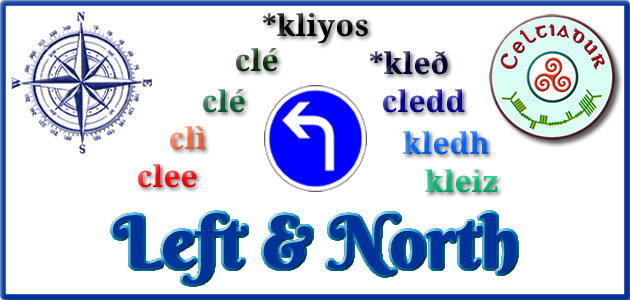Words for quick, fast, crazy, lively, ready and related things in Celtic languages.

Words marked with a * are reconstructions.
| Middle Irish (Gaoidhealg) |
tap = sudden
tapad = suddenness, haste, quickness, bravery
tapaid = quick, swift, active |
| Irish (Gaeilge) |
tapa [ˈt̪ˠapˠə] = quick(ness), ready, active, speed, vigour
tapaigean = sudden start, spring, jump, mishap
tapaigh = to quicken, grasp quickly
tapaíoch = quick, active, alert person
tapaíocht = quickness, activeness, alertness
tapóg = tendency to jump, nerviness, sudden impulse
tapógach = jumpy, nervy, impulsive |
| Scottish Gaelic (Gàidhlig) |
tapadh [tahbəɣ] = cleverness, smartness, thanks, alertness, feat, achievement
tapadh leat/leibh = thank you
tapaidh [tahbɪ] = clever, smart, brave, heroic, active, vigorous
all-tapadh = mishap, accident, misfortune |
| Manx (Gaelg) |
tappee = fast, hasty, quick, rapid, speedy, swift
tappeeid= quickness, rapidity, speed
tappeeys = quickness, rapidity, speed, nimbleness |
Etymology: uncertain
| Old Irish (Goídelc) |
opunn = fast, prompt, quick |
| Middle Irish (Gaoidhealg) |
opunn, obunn, opund, topund = quick, swift, prompt, hasty, precipitate |
| Irish (Gaeilge) |
tobann [ˈt̪ˠɔbˠən̪ˠ] =sudden, unexpected, hasty, impulsive, quick-tempered |
| Scottish Gaelic (Gàidhlig) |
obann [obən̪ˠ] = sudden, unexpected
gu h-obann = suddenly |
Etymology: uncertain
| Old Irish (Goídelc) |
ellam, ollam, ullam = quick, ready, soon, speedy |
| Middle Irish (Gaoidhealg) |
ellam, ollam, ullam = quick, prompt, speedy, soon, readily, ready, prepared, finished, complete
ellma = speed, rapidity, promptness, speedily, soon, prompty, soon enough, ready, prepared
ellmaigid = to prepare, make ready |
| Irish (Gaeilge) |
ullamh [ˈɔl̪ˠəvˠ/ˈʊl̪ˠuː] = ready, willing, prompt, prepared, predisposed inclined, finished
ullmhacht = readiness, preparedness
ullmhaigh = to make ready, prepare
ullmhaitheach = preparative
ullmhaitheoir = preparer
ullmhú = preparation
ullmhúchán = preparative, preparation |
| Scottish Gaelic (Gàidhlig) |
ullamh [ul̪ˠəv] = done, finished, ready, prepared, mature, handy, prone to
ullamhachadh [ul̪ˠəvəxəɣ] = preparing, getting ready, preparation, arranging, arrangement, providing, provision
ullamhachd [ul̪ˠəvəxg] = readiness, preparedness, proneness, aptitude, aptness |
| Manx (Gaelg) |
ullee = conversant, operational, prepared, ready |
Etymology: from Old Irish ar (for, on), fo- (under, sub-) and lám (arm, hand) [source].
| Old Irish (Goídelc) |
mer = crazy
meraige = crazy person, fool |
| Middle Irish (Gaoidhealg) |
mer = demented, crazy, wild, rash
meraige = a muddle-headed or scatter-brained person; aberration, derangement |
| Irish (Gaeilge) |
mear [mʲaɾˠ] = quick, fast, nimble, lively, spirited; precipitate, hasty, rash; quick-tempered, fiery; mad, crazy; furious, raging, angry
mearadh = madness, insanity, craze, craving
mearaí = crazed person, distracted, bewildered, person, craziness, distraction, bewilderment
mearaigh = to derange, distract, bewilder, confuse, to become distracted
mearaitheoir = distracter, bewilderer, infuriating person. |
| Scottish Gaelic (Gàidhlig) |
mear [mɛr] = merry, joyful, frisky, lively
mearachas [mɛrəxəs] = mirth, merriment
mearachd [mɛrəxg] = merriness
mearaiche = droll / merry person |
| Manx (Gaelg) |
merre [mɛr] = frenzy |
| Welsh (Cymraeg) |
miri = merry, gay, fun, merriment, mirth, tumult, fuss, bother, predicament
miriman = fool, clown, wild and unruly person
miriol = merry, gay |
Etymology: possibly from English merry, or Middle English mery (happy, joyful, pleased), from Old English myrġe (pleasant, attractive, enjoyable), from Proto-West Germanic *murgī (short, slow, leisurely), from Proto-Germanic *murgijaz/*murguz (short, brief slow, leisurely), from Proto-Indo-European *mréǵʰus (short, brief) [source].
| Proto-Celtic |
*lim-ā- = to sharpen, polish |
| Old Irish (Goídelc) |
límaid = to polish, sharpen |
| Middle Irish (Gaoidhealg) |
límaid, límad = sharpens, grinds, polishes
límtha = sharpened, burnished, keen, polished, fluent
límugud = act of sharpening |
| Irish (Gaeilge) |
líomh [mʲaɾˠ] = to grind, sharpen, file, smooth, polish, erode, destroy
líomhadh = to grind, polish, erosion, destruction
líomhadóir = grinder, filer, polisher
líomhán = file |
| Scottish Gaelic (Gàidhlig) |
lìomh [l̪ʲiəv] = polish, gloss, burnish, refinement |
| Manx (Gaelg) |
shleeu = to grind, sharpen, whet, grinding, sharpening
shleeuan = file
shleeuee = grinder |
| Middle Welsh (Kymraec) |
llim, llym, lem = sharp, pointed, keen, harsh, shill, quick, swift
lllymu = to whet, file, sharpen
llymaidd = sharp, keen, piercing, harsh, severe, eager, ardent
llymder = sharpness, keenness, harshness, severity
cyflym, kyflym = quick, swift, speedy, brisk, quick-witted, intelligent, ready, clever, sharp, keen, acute
kymlymder, cyflymdra = swiftness, quickness, rapidity |
| Welsh (Cymraeg) |
llym [ɬɨ̞m/ɬɪm] = sharp, pointed, keen, harsh, shill, quick, swift
llymaf, llymu = to whet, file, sharpen, speak severly
llymaidd = sharp, keen, piercing, harsh, severe, eager, ardent
llymder = sharpness, keenness, harshness, severity
cyflym = quick, swift, speedy, brisk, quick-witted, intelligent, ready, clever, sharp, keen, acut
cyflymaf, cyflymu = to quicken, accelerate, hasten, expedite
cyflymder = swiftness, quickness, rapidity |
| Middle Cornish (Cernewec) |
lemma, leamn, lemen, lemmen, lemyn, lemmyn, lymmyn = to sharpen, whet |
| Cornish (Kernewek) |
lymm, lebm = sharp, acute, keen, piercing, insightful
llymma = to sharpen |
| Middle Breton (Brezonec) |
lem, lemm = sharp, pointed, acute
lemaff, lemmaff = to sharpen, make sharp
lemder = acuity
lemer = sharpener |
| Breton (Brezhoneg) |
lemm = pointed, sharp, acute
lemmañ, lemmiñ = to sharpen, make sharp
lemmded = acuity
lemmell = sharp
lemmerez = sharpener
lemmet = sharp(ened), keen, pointed |
Etymology: probably from PIE *sley- (smooth, slick, sticky), or from Latin līma (file), from the same PIE root [source]. Words from the same roots include slime in English, and llif (saw) in Welsh [source].
| Proto-Celtic |
*bīwonos = ? |
| Middle Welsh (Kymraec) |
buan= fast, swift, rapid
buander = quickness, alacrity, swiftness, speed
buaned, buanez = quickness, swiftness, speed |
| Welsh (Cymraeg) |
buan [ˈbɨː.an/ˈbiː.an] = fast, swift, rapid
yn fuan = soon
mor fuan â phosibl = as soon as possible
buanaf, buanu = to accelerate, hasten, move swiftly
buander = quickness, alacrity, swiftness, speed
buanedd = quickness, swiftness, speed |
| Cornish (Kernewek) |
buan = lively, quick |
| Old Breton |
buenion = quck, fast |
| Middle Breton (Brezonec) |
buan = quck, fast |
| Breton (Brezhoneg) |
buan = quick, fast
buanaat = to accelerate
buanaer = accelerater
buanded = speed, rapidity |
Etymology: probably from Proto-Celtic *biwos ((alive, living, mortal) from PIE *gʷeyh₃- (to live) [source]. Words for life and food come from the same roots, as do English words such as bioology, quick, vital, vivid and zoo [source].
| Proto-Brythonic |
*parọd = ready, prepared |
| Middle Welsh (Kymraec) |
paraut, paravt, parawt = ready, prepared, arranged, quick, prompt, immediate, sudden, nimble, easy, available, convenient
paroded = readiness, prepardness, willingness
parotruyd, parodrwyd = readiness, willingness
embaratoi, ymbarot(t)oi = to prepare (oneself), provide oneself with necessities |
| Welsh (Cymraeg) |
parod [ˈpa(ː)rɔd] = ready, prepared, arranged, ready-made, instant (coffee, etc), quick, prompt, immediate, sudden, nimble, easy, available, convenient, absolute, downright
parodaf, parodi = to make ready, prepare
parodrwdd = readiness, willingness
paratoi [paraˈtɔi̯] = to prepare
ymbaratoi = to prepare (oneself), provide oneself with necessities |
| Middle Cornish (Cernewec) |
parys = ready |
| Old Cornish |
parot = prepared, ready |
| Middle Cornish (Cernewec) |
parys = prepared, ready
parusy = to make ready, prepare |
| Cornish (Kernewek) |
parys = conventient, handy, ready
pareusi, paruji = to cook, edit, make ready, prepare
ombareusi, ombaruji = to get ready, prepare oneself |
| Middle Breton (Brezonec) |
paret = cooked, boiled
paredet = cooked, boiled
pareiff = to boil, cook |
| Breton (Brezhoneg) |
pared [ˈpɑː.rɛt] = cooked, boiled
paredigezh = heat wave
paredin, parediñ = to cook
paredus = heating |
Etymology: from Latin parātus ((alive, living, mortal) from PIE parō (I prepare), from PIE *perh₃-o (providing), from *perh₃- (to grant) [source].
Words from the same PIE roots include pare (to remove the outer covering or skin of something with a cutting device) in English, paràre (to adorn, protect, shield) in Italian, parar (to stop, put up, lift, raise) in Spanish [source] and words for grace and favour in Celtic languages.
For other words for quick see the Celtiadur posts: Early and Soon

Sources: Wiktionary, Am Faclair Beag, Online Manx Dictionary, Teanglann.ie, eDIL – Electronic Dictionary of the Irish Language, In Dúil Bélrai English – Old Irish glossary, Geiriadur Prifysgol Cymru, Gerlyver Kernewek, Dictionaire Favereau, TermOfis, English – ProtoCeltic WordList (PDF), Etymological Dictionary Of Proto Celtic











![NORE LINEAR PARK IN KILKENNY CITY TUESDAY 10 MAY 2016 [THE WEATHER WAS VERY WET AND HAZY]-115697](https://live.staticflickr.com/7252/26956922875_8c4fa16399_z.jpg)
